“They kept Houshmand in solitary confinement for over three months, they tortured and hurt him to confess to deeds that he had not committed and to say what the interrogators wanted him to say and, in the end, they sentenced him to death.”
These are the words of Hazhar Alipour, brother of the Kurdish political prisoner who was tried and sentenced to death by the Revolutionary Court in Sanandaj, the capital of Iran’s Kurdistan province, on the charge of armed rebellion. Houshmand Alipour and Mohammad Ostad Ghader, members of the Kurdistan Freedom Party (PAK) had been arrested in the early hours of Saturday, August 4, 2018.
According to Ali Sakeni, the lawyer for the two political prisoners, Alipour, 25, and Ghader, accompanied by another member of the PAK, left the party’s camp in Iraqi Kurdistan to travel to Iranian Kurdistan on assignment for the party.
“I do not know what the operation was about,” Sakeni said, but they were charged with “throwing grenades into the courtyard of the police criminal investigation bureau in the city of Saghez. The attack that took place at midnight on August 3, 2018, caused no damage and a few hours later, on the morning of Saturday, August 4, 2018, Houshmand and Mohammad were arrested on the road to Baneh as they were leaving Saghez. A third person managed to escape.”
Sakeni is on the list of lawyers approved by the head of the judiciary that, according to Article 48 of the Islamic Penal Code — an article that has attracted a good deal of controversy — are the only legal professionals allowed to represent cases relating to national security at the sensitive preliminary investigation stage. Sakeni says that, although at the time of the arrest the accused were in possession of handguns, grenades and bullets, they were arrested without resisting or opening fire.
Confirming Alipour's and Ghader’s membership in the Kurdistan Freedom Party, Khalil Naderi, the party’s spokesman, said the two had been sent to Saghez on a political mission and were not involved in the attack on the police bureau.
“They were also supposed to return an injured party member to the party’s camp in Iraqi Kurdistan,” Naderi said. “They played no part whatsoever in the Saghez attack and others were responsible for carrying out that operation. I must add that Houshmand and Mohammad were arrested in Baneh, not Saghez. The security establishment of the Islamic Republic is lying when it says they were captured on the road from Saghez to Baneh.” He said authorities did this in order to charge them with the Saghez attack.
According to their lawyer Ali Sakeni, the pair had recorded a video of the attack, which was found on a mobile phone they were carrying at the time of their arrest. Besides their confessions, this video was also presented as evidence of their guilt. “I have not seen this video, but its existence and content is mentioned in their case file,” he said.
But the PAK spokesman Khalil Naderi says that this video had been posted on social media by other party members; it does not show any specific individuals, and consequently it cannot be used as evidence to accuse Alipour and Ghader (or anyone else) of taking part in the attack.
Naderi added that that Alipour and Ghader are known members of the PAK’s Peshmerga (Kurdish fighters in Iraqi Kurdistan), have fought in the war against ISIS in Iraqi Kurdistan and can be seen in many pictures and videos from the war. But Naderi insisted that “Houshmand and Mohammad were not on a military mission to Iranian Kurdistan and did not use any weapons. In any case, however, they are Peshmerga and must be treated as prisoners of war.”
The Usual TV Confessions
Four days after Alipour and Ghader were arrested, a video of their confessions was aired both on the provincial TV network in Iranian Kurdistan and on national state television. Both confessed to being members of the PAK and accepted responsibility for the grenade attack on the police investigation bureau in Saghez. It not clear under what conditions these confessions were obtained. But the broadcast of the confessions did not cut short their detention by the Intelligence Bureau and the pair were kept in solitary confinement until November 19, 2018.
Ali Sakeni, their judiciary-approved lawyer, claims that the two confessed to membership in PAK and to responsibility for the attack in Saghez voluntarily and without any torture.
“From day one they confessed to everything and accepted responsibility,” he says. “There was no way they could deny it. The reason they were kept in solitary confinement for 106 days was to complete the intelligence debriefing, because they were members of an opposition party. But in no way were they tortured or abused. As their lawyer, I deny any claim by any person or organization that they have been tortured. Neither in prison nor during the interrogations were these two political prisoners tortured. They were treated extremely well.”
But, in a statement on September 10, 2018, Amnesty International questioned the validity of their televised confessions.
“The pair were held in an unknown location without access to their families or lawyers,” Amnesty said. Their confessions undermined “their rights not to be compelled to incriminate themselves, to [a] presumption of innocence and to freedom from degrading treatment.”
The Amnesty statement also reported that “Mohammad Ostad Ghader was shot and injured during the arrest but has been denied medical care.”
Confessions Without the Presence of a Lawyer are Inadmissible
Hasan Raeesi, an Iranian human rights lawyer and a professor of law at Canada’s Carleton University, agrees that confessions extracted from defendants at security detention centers are not legally astute. “These confessions are obtained without the presence of a lawyer and are not admissible,” he says. “Based on Iran’s new Code of Criminal Procedure, using any pressure to obtain confessions is forbidden and any evidence or proof obtained through confessions under pressure is invalid. Considering that applying pressure and using torture are common in [national] security cases, we can assume that these confessions were also obtained under pressure. Besides, we also have to know what the defendants said in the court. What do they have to say about their confessions now? Are they ready to confirm them today?”
Raeesi adds that broadcasting such confessions is in itself illegal because in cases that are processed behind closed doors investigations must remain confidential until the end of the process and until the final verdict is issued.
On the other hand, Ali Sakeni, the defendants’ judiciary-approved lawyer, says that broadcasting the confessions has had positive results and convinced a number of PAK members to escape and surrender to Iranian security forces. “Unfortunately,” he claims, “PAK is operated in a way that if a person becomes a member he has no chance to leave the party unless he finds an opportunity to escape their camp. What is more, this party also recruits children to its ranks and these children are not given any chance to reconsider, like Mohammad Ostad Ghader, who joined the party as a child.”
PAK’s spokesman Naderi says that this claim is not accurate and that his party has bylaws of which the prospective members are informed before they join the party: “We are engaged in a revolutionary struggle and we are not bound by [international] conventions that governments are committed to. That is why we accept underage members, but they only go through a political education and do not join the party’s military wing until they turn 18. But I must add that, according to the party’s laws, we only accept those who give us a commitment that they will not leave the party for three years and if somebody does not accept this condition he cannot enter our ranks at all. After three years all members are free to remain or leave the party.”
“He only fought ISIS”
“My son was a refugee in Turkey for a long time and his case was accepted by the United Nations' refugee (UNHCR) agency, but he returned to Iraqi Kurdistan and fought ISIS for four years together with PAK, which opposes the Islamic Republic of Iran,” said Houshmand’s father Mostafa Alipour in an interview in August 2018. “He only fought ISIS. Everybody knows that he was only armed to fight ISIS, the enemy of all humans. He was injured several times. My son and Mohammad Ostad Ghader defended Iraqi and Iranian Kurdish people.”
According to their lawyer Ali Sakeni, Houshmand Alipour and Mohammad Ostad Ghader were transferred from the detention center of Sanandaj’s Intelligence Bureau to Branch 2 of that city’s courthouse and were informed of the three charges against them: armed insurrection, possession and carrying of unauthorized weapons and propaganda against the regime.
On October 29, 2018, the family of Houshmand Alipour was allowed to visit him at the detention center of Sanandaj’s Intelligence Bureau for the first time after his arrest. A short while later the solitary confinement of the two prisoners ended and they were moved from the detention center to the central prison of Saghez. But their stay at this prison lasted little over a month and on December 26, 2018, they were transferred from Saghez prison to Sanandaj for their court session.
The trial of the two defendants started on October 31, 2019 at Branch 1 of Sanandaj Revolutionary Court in the presence of their lawyer. “Anybody could have attended the court because the trial was public,” says Sakeni.
Not “Public” if the Public Does not Know About it
But no member of the families of these two political prisoners were present at the trial, not the elderly father of Mohammad Ostad Ghader and not Houshmand Alipour’s brother or sisters. Neither were there any reporters or eyewitnesses present who could later inform the public about the proceedings. Alipour’s brother Hazhar says that this is the first time that his family has heard that the trial was public: “They told our family that we could not attend the trial and, if we wanted to see Houshmand for a few moments, we could see him when he enters or leaves the courtroom. I do not believe that the trial was public. Now that the trial has been held without the presence of the families, they are lying about it.”
According to Hossein Raeesi, based on Iranian laws, all trials must be public unless the judge decides to hold it behind closed doors, but a trial can be only “public” if the public knows about it beforehand: “When it is not announced that such an important trial is to take place and when even the families are not invited and no reporter is present, then it is not really a public trial and the whole concept of a public trial has been ridiculed.”
Ali Sakeni says that he was informed of the Revolutionary Court’s verdict on December 29, 2019: “Mohammad Ostad Ghader was sentenced to five years in prison. This sentence is acceptable to both me and my client and we do not plan to appeal. But Houshmand Alipour has been sentenced to death and both Houshmand and I will appeal. I have already submitted my request for appeal to the court.”
Similar Charges, Different Sentences
But why, when both defendants have been charged with similar crimes, have they received different sentences? Why has Houshmand Alipour been sentenced to death? According to Ali Sakeni, both defendants were sentenced to 10 years in prison for the illegal possession of arms and to one year in prison for propaganda against the regime through membership to an opposition party. Both were liable for the death sentence because of the charge of armed insurrection, as specified in Article 286 of the Islamic Penal Code: “Any person, who extensively commits...offenses against internal or international security of the state...shall be sentenced to death.”
Sakeni says that both defendants wrote letters of repentance but only that of Mohammad Ostad Ghader was accepted because he had no criminal record: “On this charge [armed insurrection] they gave him only three years in prison and, considering that he joined PAK when he was 14, the judge reduced his total prison time of 10 years to five.”
But, says Sakeni, the judge did not accept Houshmand Alipour’s repentance and sentenced him to death on the charge of armed insurrection. According to Houshmand Alipour’s brother Hazhar Alipour, Sakeni has told them that his repentance was probably rejected because of his criminal record. “Houshmand was arrested on the night of the Festive Wednesday [the last Wednesday of the Iranian calendar year, when Iranians celebrate by jumping over outdoor fires and set off fireworks] of 1378 [March 14, 2001], when he was only 15,” says Hazhar Alipour. “When security and police agents attacked the ceremonies of Festive Wednesday in the city of Sardasht and targeted people with teargas and batons, Houshmand, who was angry because a friend of his had been hit by the teargas, picked up a stick, attacked a police car and broke its windows and its hood.”
According to Hazhar Alipour, his brother was teargassed and arrested right there and then. He was then tortured and was forced to sign a few pieces of paper in the dark torture room of Sardasht’s Intelligence Bureau without knowing what he was signing. “A few weeks later they put Houshmand on trial and sentenced this 15-year-old boy to four years in prison for breaking the police car’s hood and on charges based on the papers that he had signed,” says Hazhar Alipour. “Because he was underage, he spent three years of his sentence at Urmia’s correctional facility. This is the criminal record that the government talks about.”
Hazhar Alipour says that his family has presented the court with another lawyer by the name of Morteza Javanmardi Asl. The lawyer has been accepted by the court and he has been able to meet with Houshmand. According to Hazhar, the new lawyer is very optimistic that Houshmand’s death sentence can be overturned because he surrendered peacefully and without using firearms when he was arrested and he has no record of participating in clashes between PAK and Iran’s military forces.
“He does not deserve this fate”
Hazhar says that his brother does not deserve this fate: “For more than three years Houshmand was on the frontlines of the war against ISIS and, as a Peshmerga, played a role in defeating the Islamic State. But now he has been tried and sentenced by a government that, in many respects, is not that different from ISIS.”
International human rights organizations have condemned the death sentence against Houshmand Alipour. On January 23, Amnesty International called for urgent action to save his life.
“Iran has a dismal record of sentencing political detainees to death based on forced confessions,” an Iran Human Rights Monitor article states. “This is an old tactic of the regime’s intelligence and suppression apparatus and has long been a topic of discussion and criticism among international human rights organizations, who have condemned the regime for violating the most basic rights of political prisoners.”
Related Coverage:
The Unbearable Absurdity of the New Round of Forced Confessions in Iran, 5 December 2019
My Husband was Tortured to Confess to Spying for the CIA, 2 October 2019
Torture Victim Urges Media and Tech Industry to Stop Selling to Iran, 18 September 2019
“I Hear the Voices of the Tortured”, 17 September 2019
IranWire Exclusive: Environmental Activists Tortured and Forced to Confess, 23 August 2019
I had two mock executions. I wished they would execute me for real, 12 August 2019
The Judge Threatened to Sentence Us to Death if We Didn’t Confess, 10 August 2019
Iranian TV Aired My Forced Confessions. It Should be Boycotted, 9 August 2019
visit the accountability section
In this section of Iran Wire, you can contact the officials and launch your campaign for various problems




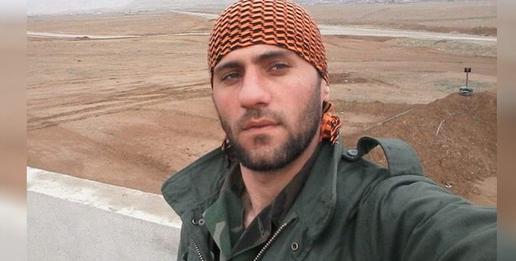
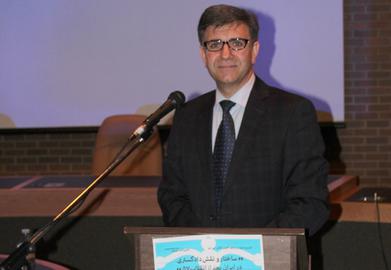
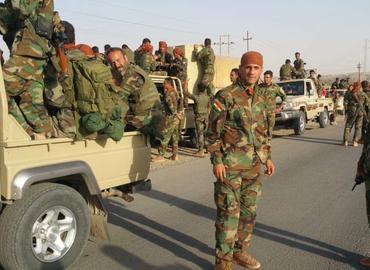
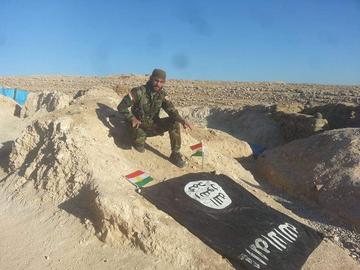
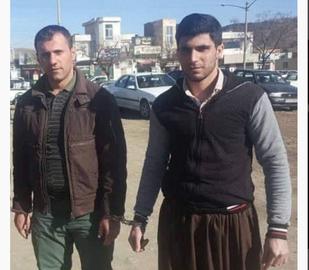



















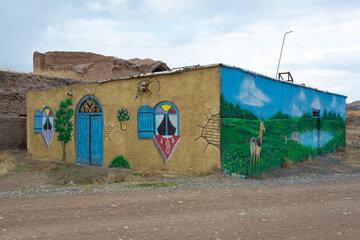
comments